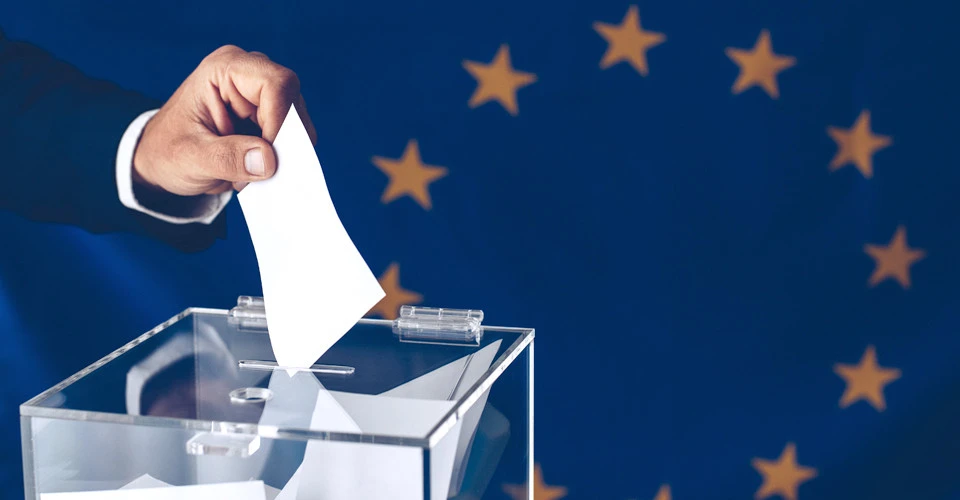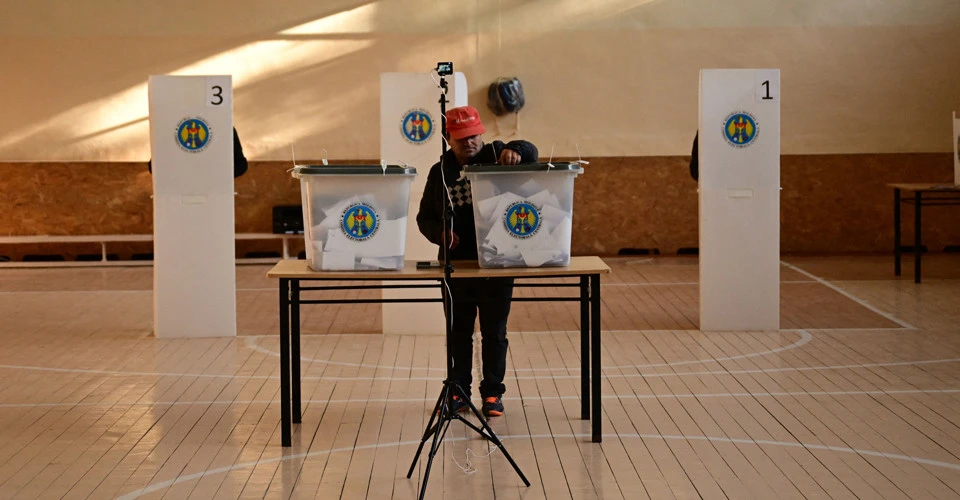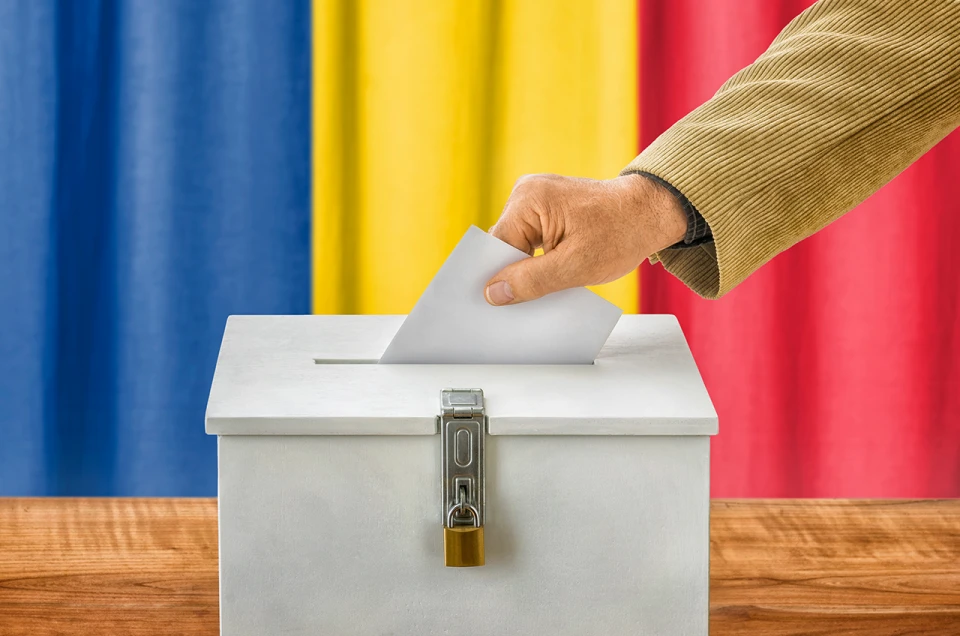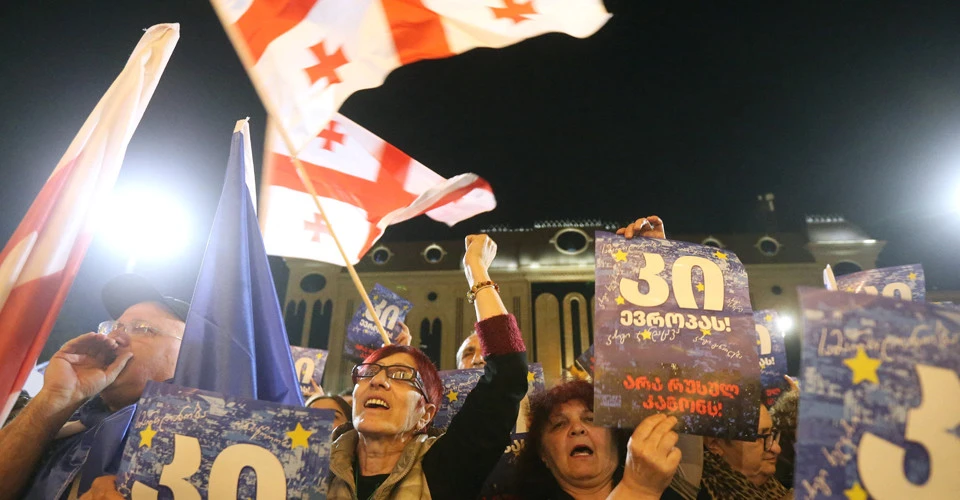
World elections – 2024: Key votes that shaped Ukraine's future
The year 2024 saw several critical elections worldwide, with outcomes that directly impacted Ukraine and its ongoing war effort
Contents
- European Parliament elections
- U.S. elections
- Moldovan elections
- Romanian elections
- Georgian elections
European Parliament elections

In early June 2024, EU member states voted in the European Parliament elections, deciding the makeup of the legislature for the coming years.
Despite strong voter turnout in some countries, including Germany and France, far-right parties failed to disrupt the traditional centrist majority in the European Parliament.
The center-right European People's Party (EPP), led by Ursula von der Leyen, secured the most seats, maintaining its position as the largest political group in the new Parliament.
Trailing behind were the Progressive Alliance of Socialists and Democrats (S&D) in second place, followed by the Renew Europe group in third. Renew Europe remains a staunch advocate of Ukraine's EU accession and military aid to Kyiv.
While far-right parties — many of which have ambiguous or negative stances on supporting Ukraine — gained a modest increase in seats, their growth fell short of what some European analysts had predicted.
For Ukraine, these elections were pivotal in preserving the pro-Ukrainian leadership of the European Parliament, which ultimately prevailed. Experts note that although the rise of far-right representatives does not pose an immediate threat to Ukraine’s interests, their use of Russian narratives could gradually weaken military and overall support for Ukraine in the long term.
U.S. elections

The world closely followed the U.S. elections, given their immense influence on global politics. Held on November 5, the election came down to a fierce contest between Kamala Harris and Donald Trump.
The race was neck-and-neck, with results in seven key states fluctuating within the margin of error until the final hours. Everything changed on Wednesday morning, November 6, when Trump secured 277 Electoral College votes — well above the 270 needed to win. This victory was clinched by his success in several critical swing states. Harris, by contrast, received 224 votes.
Thus, Republican Donald Trump was elected as the next president of the United States for a four-year term. His inauguration is scheduled for January 20, 2025.
The outcome has sparked significant concern among international and Ukrainian experts. Many see Trump's presidency as a potential risk not only for Ukraine but for Europe as a whole. Observers across global media agree that the US election will deeply influence the trajectory of the war in Ukraine and relations with Europe.
Trump's victory could lead to setbacks for leaders in London, Berlin, and Paris. Meanwhile, European authoritarian and far-right figures like Hungarian Prime Minister Viktor Orbán and Italian Prime Minister Giorgia Meloni may interpret his win as a validation of their own positions.
Throughout his campaign, Trump repeatedly claimed he could "end the war in Ukraine in 24 hours." He has also spoken positively about his rapport with Russian dictator Vladimir Putin, claiming he had warned Putin against a full-scale invasion.
With Trump’s inauguration still weeks away, current President Joe Biden is working to ensure that prior commitments on military aid to Ukraine are fulfilled before leaving office.
Elections in Moldova

In the fall of 2024, Moldova held presidential elections along with a referendum on European integration.
Supporters of European integration narrowly won the referendum. This happened despite Russia’s attempts to bribe voters to delay Moldova’s path to the EU. During this time, the country’s police identified 520 people connected to a voter bribery scheme. However, pro-Russian forces couldn’t derail Moldova’s course.
Later, in the presidential elections, Maia Sandu, against all odds, defeated the Kremlin-backed candidate Alexandr Stoianoglo. While Stoianoglo admitted defeat, he warned that he “won’t stop.”
For Ukraine, Sandu’s victory and the referendum’s outcome were crucial. A win for pro-Russian forces would have created another hotspot for Kremlin provocations, right on Ukraine’s border.
Elections in Romania

Romania held both presidential and parliamentary elections in 2024.
The real threat for Ukraine emerged when pro-Russian candidate Călin Georgescu won the first round of the presidential elections. Georgescu had praised the Romanian fascist politicians of the 1930s as national heroes, criticized NATO, opposed Romania’s stance on Ukraine, and advocated for closer ties with Russia. He even declared that, as president, he would cut off aid to Ukraine.
The second round was set to feature a showdown between Georgescu and pro-European candidate Elena Lasconi. However, just before the runoff, Romania’s Constitutional Court annulled the first round’s results. As a result, the presidential race remained unresolved, and the drama will carry over into 2025.
Meanwhile, the parliamentary elections brought a win for the Social Democratic Party (PSD) led by Prime Minister Marcel Ciolacu, which secured the largest share of votes. The “Alliance for the Unification of Romanians” (AUR) followed as the second-leading party. In total, seven parties now make up the new parliament.
Notably, far-right, Russia-friendly parties also gained significant ground, giving them the potential to influence Romania’s direction. Whether Romania can resist increasing Russian interference will only become clear after the presidential elections.
Elections in Georgia

This year’s parliamentary and presidential elections in Georgia triggered mass protests that continue to grow.
In the October 26 parliamentary elections, the pro-Russian ruling party “Georgian Dream” retained power. Soon after, the party announced it would suspend EU accession talks until the end of 2028. Meanwhile, state propagandists flooded the media with calls to revive the study of Russian language and culture. Combined with the earlier “foreign agents” law, this sparked massive nationwide protests.
The presidential elections on December 14 introduced a controversial twist: for the first time, citizens didn’t vote directly. Instead, a special board dominated by “Georgian Dream” selected the president. Unsurprisingly, the board elected Mikheil Kavelashvili, who secured 224 votes.
Political experts describe Kavelashvili as a puppet of oligarch Bidzina Ivanishvili. A former football player without higher education, Kavelashvili is known for his crude public comments. His lack of qualifications previously barred him from heading the Georgian Football Federation, yet it didn’t stop him from becoming president.
Kavelashvili’s inauguration took place on December 29, but his legitimacy is widely rejected — by former President Salome Zurabishvili, the opposition, key Western allies, and thousands of protesters. Despite this, he has already signed several controversial laws passed by parliament.
- News











































